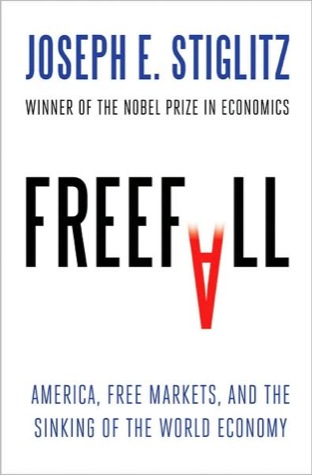Nobel-prize-winning economist Joseph Stiglitz‘s take on the 2008 financial crisis is simple: Free markets are bad; government is good; we need more government. This is, essentially, a reiteration of what is known as the Greenwald-Stiglitz theorem, which states that markets are imperfect, so “government could potentially almost always improve upon the market’s resource allocation.”

A flaw common to both the Greenwald-Stiglitz theorem and Freefall is that, while Stiglitz goes to great efforts to show that markets are imperfect, he makes no effort at all to show that government will do better. His theorem says government could potentially do better, and another one of his theorems says an “ideal government” could do better, but the real question, which he never addresses, is whether a real, not ideal, imperfect government will actually do any better than an imperfect market.
Freefall makes no genuine effort to analyze the causes of the 2008 financial meltdown. Instead, Stiglitz merely uses it as another example in his case for bigger government. The crisis resulted from the failure of American capitalism, he says, and he dismisses any other explanation (if he mentions it at all) as “sheer nonsense” (p. 10).







